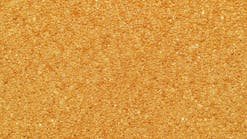By MARIAN DOZIER , South Florida Sun-Sentinel
Oct. 19, 2000 (Knight Ridder/Tribune)—Late last month, Jennifer Pack went to her local Publix on Yamato Road in Boca Raton, bought five bottles of store-brand drinking water and promptly set about drinking it.
One-and-a-half bottles later, Pack poured the liquid into her daughter's cup — and saw "junk floating around."
Publix Super Markets called that "junk" a "harmless, non-pathogenic mold" that looks bad but has nothing to do with the quality of the water.
Pack calls it something else.
"Scummy," she said. "The water looks dark gray, and you can see it through the unopened bottle. If you give it a shake, the stuff'll float around and then land back on the bottom."
Publix spokeswoman Carmen Millares said the bottles are gone. After customers complained and the company had the water tested, Publix issued an "internal removal" on Sept. 29, she said.
The grocery chain took from store shelves all the drinking water packaged in its Deerfield bottling plant, which serves the 184 stores in the Miami division. That plant bottles the store-brand soft drinks, milk and water for Publix stores from Vero Beach to the Keys.
The affected products are one- and 2 1/2-gallon jugs of blue-capped drinking water — not the spring water product — that have Deerfield's plant code 12-595 on it. Affected sell-by dates are primarily March 2001, but Millares said the company removed February sell-by dates, too.
The company had the mold tested at its own laboratory and in an outside lab in Lakeland, and found no health hazard, Millares said. She couldn't say what caused the contamination, but said, "We had the entire water-bottling system thoroughly cleaned and sanitized, so there no longer is a problem there."
"It is important for people to understand that this is harmless," she added. "Nobody could be hurt by drinking it. The water is good. "
Publix drinking water comes from the city of Deerfield, and is filtered by reverse osmosis to remove all impurities, Millares said. The plant bottles almost a million gallons per month.
There is a possibility that some of the water remained on the shelf after the recall. Pack bought her water within days of the removal, and Annie Yahinian, of Fort Lauderdale, an editorial assistant at the South Florida Sun-Sentinel, bought four bottles Oct. 6 from the Publix on Oakland Park Boulevard and Andrews Avenue in Fort Lauderdale. Two of the bottles, with the code in question but with February sell-by dates, had the contamination.
Neither woman experienced ill effects after drinking the water.
Publix alerted the state Department of Agriculture, which oversees the safety of Florida's food supply, but the chain did not issue any alerts to media or consumers.
Agriculture Department spokesman Terence McElroy said retailers are not obligated to issue notices about product recalls or removals when health and safety aren't at issue.
Pack thinks the store should have informed customers.
"I had to call all over the place trying to find out what was going on," she said. "We had been drinking this stuff. How come no one would tell us what this was?"
To see more of the South Florida Sun-Sentinel, or to subscribe to the newspaper, go to http://www.sun-sentinel.com
© 2000, South Florida Sun-Sentinel. Distributed by Knight Ridder/Tribune Business News.


